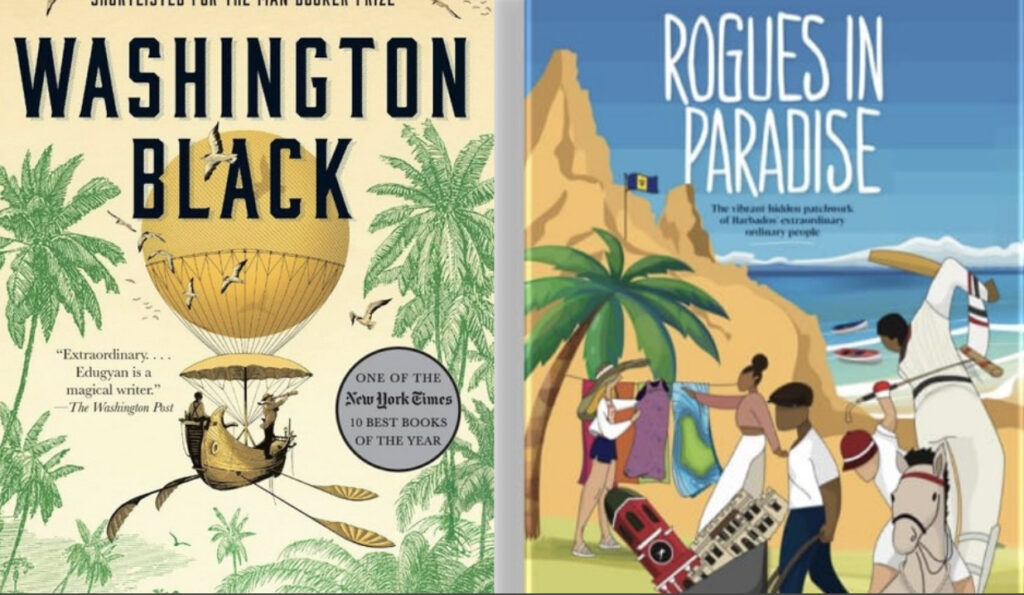Barbados Wrote the Code: The Island That Shaped an Empire
Before balloons and daring escapes, there was law. In 1661, on a coral island just 21 miles long, a set of statutes transformed people into property, transforming a sugar colony into a model for the British Atlantic. Barbados’s Slave Code of 1661 didn’t simply regulate a local economy; it set down a brutal architecture that influenced laws across the English Caribbean and informed colonial practice in North America. Understanding that code—and the world it enabled—illuminates both the island’s past and the fiction many of us know today through Washington Black.
Sugar, Law, and the Making of a “First Slave Society”
Barbados rose quickly in the seventeenth century, transformed by sugar, capital, and the forced labour of Africans. Plantation profits funded mills, boiling houses, and great houses, but it was law that made the system durable. The 1661 Slave Code legalised chattel slavery: it stripped the enslaved of rights, normalised punishment, and defined a racial order that protected planters’ property first. Historians describe Barbados as Britain’s “first slave society” because slavery touched almost every aspect of life—economy, policing, family, and faith—long before it did in other colonies.
This was not accidental. Barbados served as a laboratory where planters and politicians tested techniques for controlling labour and maximising profit. The code’s logic—severe penalties, surveillance, and racialised status—became the colony’s operating system.
The Blueprint Travels
Barbados’s influence radiated outward. Islanders left for new frontiers with capital, enslaved labour, and a ready-made rulebook. Elements of the Barbadian model—estate organisation, militia structures, and legal definitions—were adapted in the English Leeward Islands and echoed in North American slave law. While each place wrote its own statutes, Barbados’s early codification lent the British Atlantic a shared grammar of oppression.
That Atlantic echo matters because it shows how a small island shaped a much larger world. It also reminds us that the Caribbean sits at the centre—not the margin—of the story of empire.
The Human Cost—And the Human Response
Numbers and statutes risk turning people into footnotes. Barbados’s story is also the intimacy of daily survival: women selling produce at market, children learning to read against the odds, men carving out small freedoms in provision grounds and music yards. Resistance appeared in many forms—slowed work, coded songs, the passing of news, escapes planned in whispers. Faith communities nurtured dignity; family ties persisted despite sale and separation. Rogues, rebels, and remarkable ordinary people found ways to assert their humanity within a system designed to deny it.
The island’s later milestones—Emancipation, the long road to Independence in 1966, and the Republic in 2021—did not erase the past. They reframed it, giving Barbadians room to debate memory, identity, and the responsibilities of freedom.
Behind the Fiction: Washington Black Meets the Real Barbados

Contemporary audiences meet this history in stories like Washington Black—adapted by Disney/FX for the screen—where a boy from a Barbados plantation takes flight against gravity and expectation. The drama is fictional, but the conditions are not. The 1661 Code set the stage: sugar financed the dream of empire; law enforced its chains. Seeing that context doesn’t diminish the tale—it deepens it. Escape becomes not only a plot point but a refusal of a system perfected on a small island and exported abroad.
Our 56-second trailer, “Behind Disney’s ‘Wash’,” gives a quick primer: Barbados’s slave-code blueprint, its spread across the Atlantic, and why that matters when you watch the balloon rise over the sea. For sources, maps, and a wider discussion, see the link at the end of this article.
Landscapes of Memory You Can Still Walk
Barbados invites reflection not just in archives but in places you can visit. Windmill towers and boiling-house walls survive in the landscape. Villages trace old estate lines; chattel houses—small wooden homes once movable from plantation to plantation—signal mobility and stubborn independence. Rum shops and Sunday markets carry forward a sociable commons that long predates digital feeds. On the east coast at Bathsheba, Atlantic surf hammers ancient coral, reminding us that time remakes everything—even hard stone.
Heritage tours (including new programmes now in development) are opening up these stories for the public—locals and visitors alike—through guided walks, curated stops, and structured dialogue. The aim is not to rehearse pain for spectacle but to connect people to the lived textures of a past that still shapes the present.
From “Little England” to a Republic—Identity in Motion
Barbados was once called “Little England,” proud of its parliamentary traditions and its reputation for order. Today it is confidently itself: an independent republic with a global cultural voice—think cricketing legends and pop icons, poets and prime ministers. That identity holds contradictions with grace. It acknowledges the 1661 Code while celebrating the creativity that defied it; it recognises the legacies of empire while investing in education, culture, and environmental stewardship.
This balance—tough truths alongside joy, critique alongside celebration—is the heart of Barbados’s modern story, and it’s the spirit of Rogues in Paradise: dignifying the ordinary, spotlighting the ingenious, and finding humour without trivialising harm.
Why This History Matters Now
Understanding Barbados’s role in shaping Atlantic slavery equips us to read the present with clearer eyes. Conversations about reparations, memory, and restitution are not abstract—they arise from specific histories written into law. Barbados’s journey shows that people can transform institutions, that small places can shift the course of empires, and that storytelling—responsible, grounded, and humane—helps us carry the past forward without being consumed by it.
Watch the Full Podcast & Explore Further
Watch the 56-second video above and explore he full podcast for context, and sources:
roguesinparadise.com/washington-black-meets-the-real-barbados/
Find your ideal Barbados accommodation...








